Dispatch is a fresh, episodic, narrative-driven strategy game from Adhoc Studio. They’re a team brimming with talent from Telltale Games and Night School Studio, and their pedigree fully shines through. This game casts you as Robert Robertson, aka Mecha Man, a down-and-out superhero who’s traded his mech suit for a desk job as a dispatcher for the Superhero Dispatch Network (SDN). Your task? Manage a ragtag team of reformed supervillains, the Z-Team, and send them to handle emergencies based on their unique skills.

Blending Telltale Games’ signature choice-driven storytelling with a strategic dispatching mechanic, Dispatch delivers a captivating mix of humor, heart, and heroics that hooked me from the start. While the strategy elements could use more depth and screen time in these opening episodes, the stellar writing, vibrant characters, and slick presentation make Dispatch a standout in the genre.
Developer & Publisher // Adhoc Studio
Platforms // PC, PlayStation
MSRP & Release Date // $29.99 (For All 8 Episodes), October 22nd, 2025
Reviewed On // PC
Presentation & Soundtrack — Heroic Visuals & Epic Tunes

Dispatch boasts a striking 3D art style that has some semblance of Invincible blended in. It has a vibrant, comic-book aesthetic that pops right off the screen. The cutscenes are a highlight, especially the adrenaline-pumping fight sequence that kicks off Episode 1. It’s a visual treat that sets the tone perfectly. Character designs are bold and memorable, with smooth animations that invoke a Spider-Verse-inspired frame-rate style, adding a dynamic edge to the action. A word of caution: the game doesn’t shy away from mature content, including flaccid genitalia flopping around your screen for an extended period in its opening moments. So, either enable censor mode or hide your kids, hide your wife (or hide your husband).
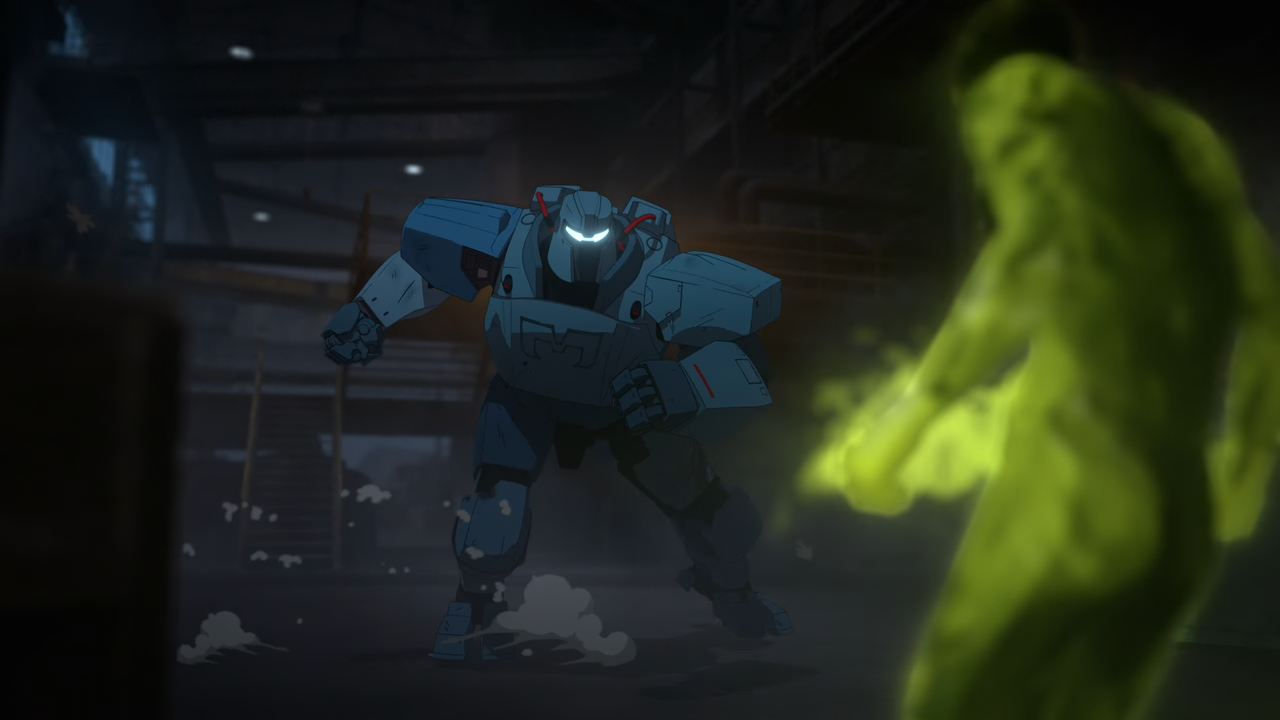
The soundtrack nails the vibe of a superhero TV show, with tracks that enhance the drama and action without stealing the spotlight. While not every song is a banger you’ll hum for days, the licensed end-credit songs for each episode are a delightful surprise—Episode 2’s track, in particular, caught me off guard in the best way. The music feels authentic to the experience, complementing the narrative without overpowering it.
Narrative & Characters — A Bold (Re-)Origin Story
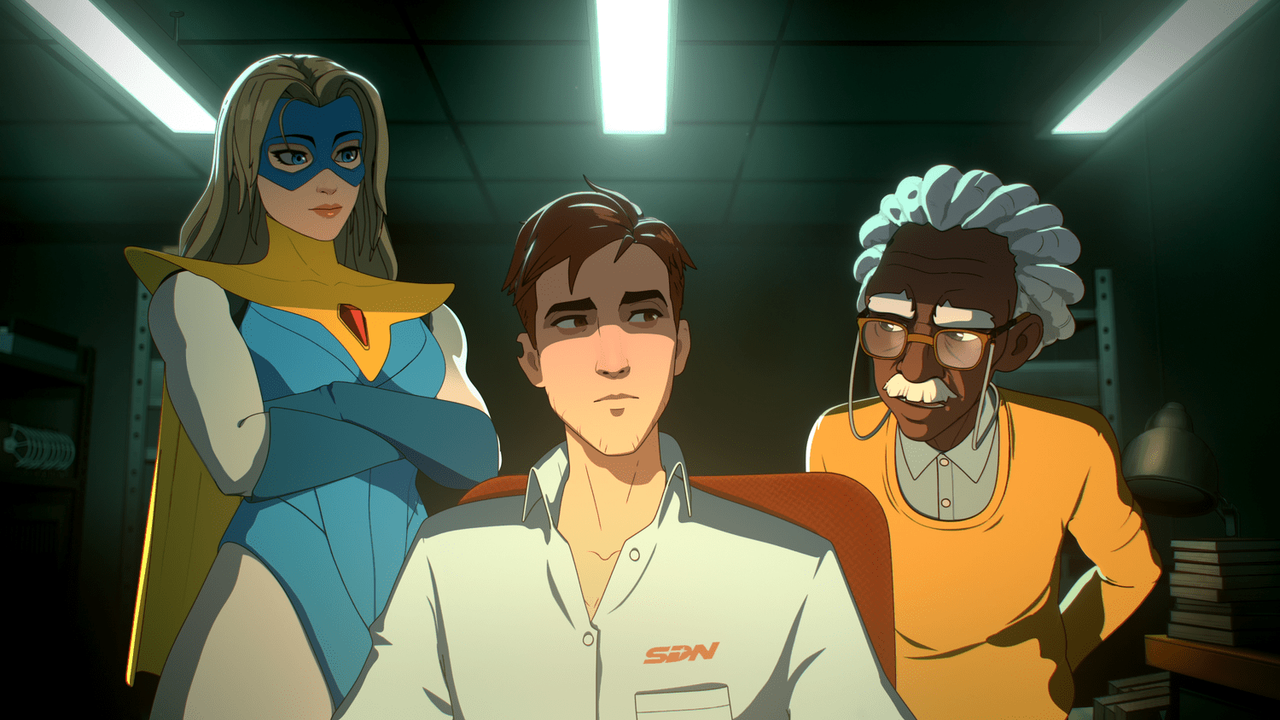
In Dispatch, you step into the boots of Robert Robertson, the third-generation Mecha Man, a hero without natural powers who relies on a high-tech mech suit. The game opens with a chilling introduction to Shroud, the hero-turned-villain who murdered Robert’s father. Shroud’s quiet, calculated demeanor immediately marks him as a formidable and menacing threat, setting the stage for what promises to be a major conflict in later episodes. After Robert’s attempt to avenge his father leaves his suit in ruins, his superhero days are put on hold.

Enter the SDN, which offers him a job as a dispatcher and coach for the Z-Team. In exchange, the SDN has offered to fix his suit and provide the necessary resources for him to maintain it. While working, Robert will hide his identity as Mecha Man with only a few members of SDN knowing who he is. His journey is one of redemption and reinvention, and the first two episodes, each clocking in at about an hour including gameplay elements, do a fantastic job establishing his personality: witty, sarcastic, flawed enough to be relatable, but completely serious when it comes to being a hero and doing his job. While I found the episodes a touch too short for my liking, every moment is so fulfilling and well-utilized that it’s hard to complain too much.
Narrative & Characters (Continued) — A Loveable Ragtag Cast
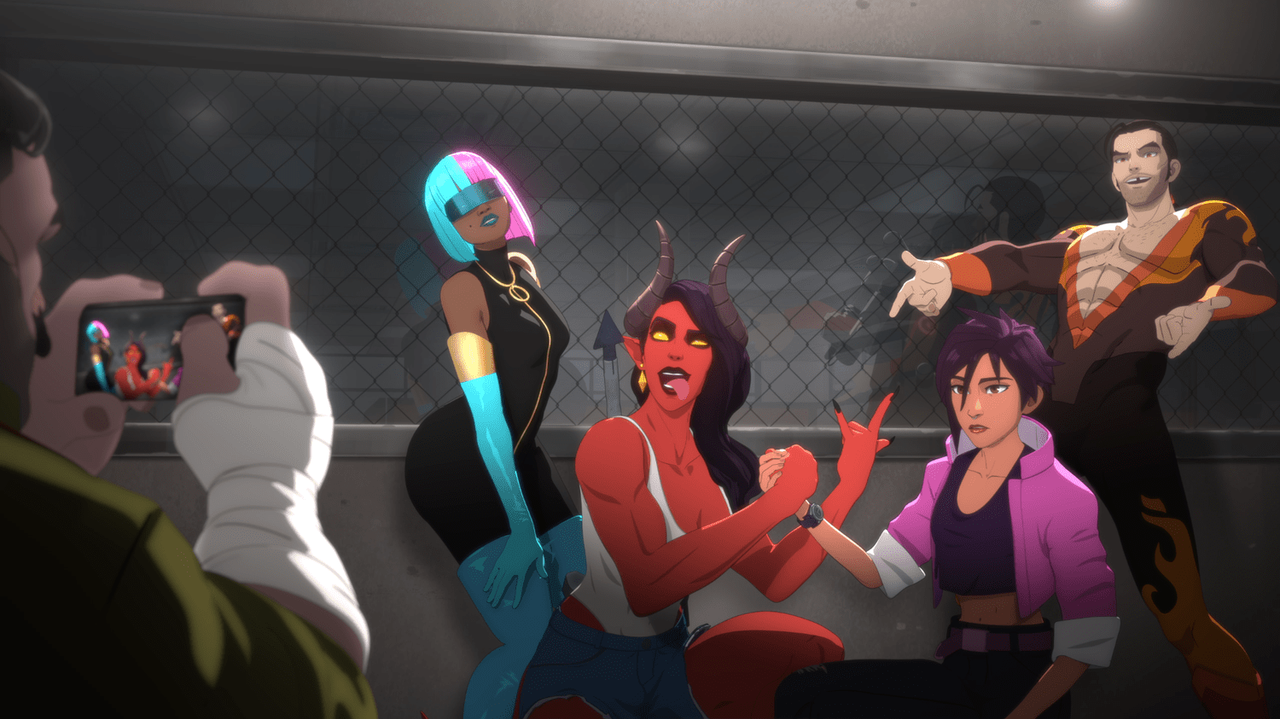
The supporting cast is a highlight. Blonde Blazer, a charismatic Wonder Woman-esque hero, hints at a budding romance with Robert, while SDN staff like Chase (a former speedster and family friend) and Royd (a hulking Hawaiian with a magnetic presence) steal their scenes. Phenomaman is a Superman-esque hero who seems to be the hero among heroes. He’s alluded to throughout the first 2 episodes, but you realize he will play a significant role towards the end of Episode 2. However, the Z-Team, a misfit group of supervillains trying to go straight, is where the game shines brightest.
Flambae is a flame-wielding douchebag with a grudge against Mecha Man after a couple of past run-ins. He’s disordered and doesn’t seem to have fully left his villain mentality behind. Invisibitch—I mean Invisigal is rebranding for her superhero role, but she may be even more of a handful. She’s hotheaded, selfish, and all around just a shady character, but she attempts to get along with Robert. She also has asthma and carries an inhaler around, which is kinda cute. Other team members like Prism, Sonar, Coupé, Malevola, Punch Up, and Golem get less focus so far, but tease plenty of potential.

The narrative is a masterclass in episodic storytelling, blending raunchy humor, authentic dialogue, and heartfelt moments. Choices, while not earth-shatteringly consequential, are engaging. Whether it’s flirting with Blonde Blazer, starting a bar brawl, or deciding whether to yeet a villain you kidnapped off a four-story patio. Timed dialogue options flow seamlessly, making conversations feel natural and immersive. Your choices even go as deep as affecting background music as the mood completely changes from Robert’s POV. The cliffhanger isn’t a gut-punch but leaves you eager for more, cementing Dispatch as one of the most enjoyable narrative game intros I’ve played.
Gameplay — Behind-The-Scenes Tactical Thrills
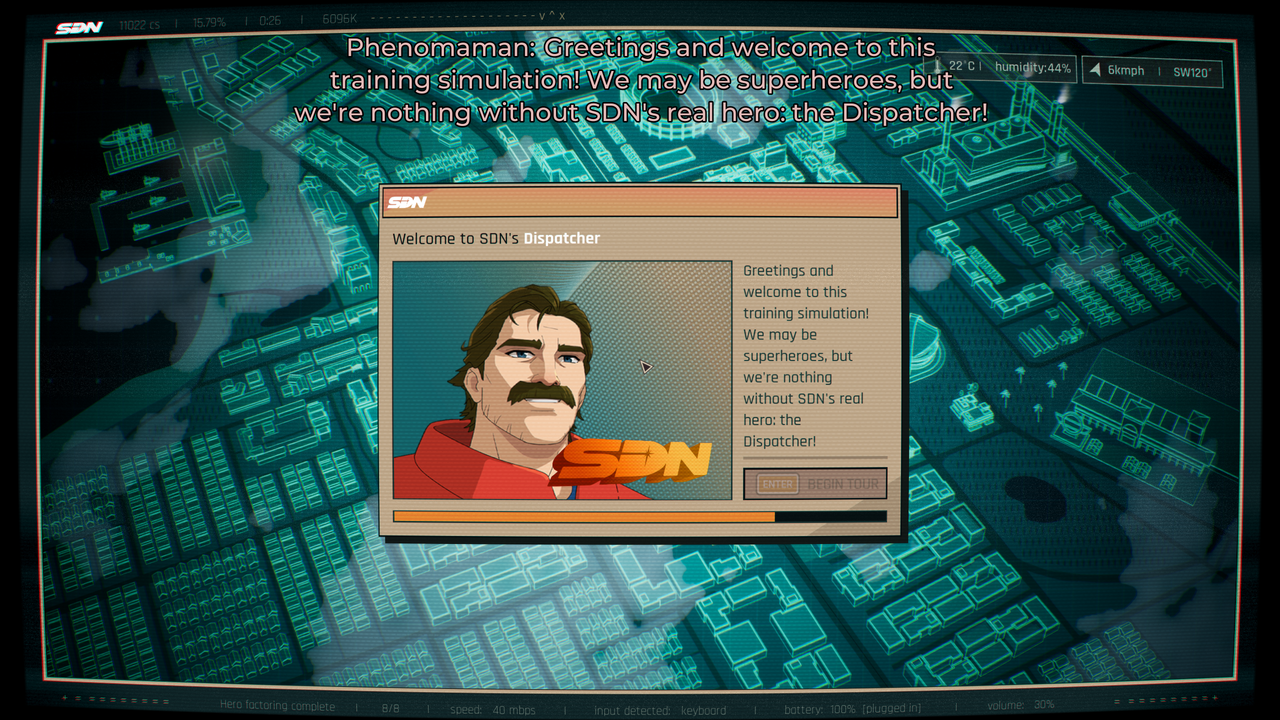
Dispatch mixes three gameplay styles, each adding a unique flavor to the experience. Quick-time events (QTEs), which are optional, let you dive into the action during cutscenes, syncing button prompts with the on-screen chaos. Hacking minigames, leveraging Robert’s tech skills, are timed puzzle-based challenges where you guide a box through branching paths using Helldivers-style D-pad sequences to open routes and reach the goal. These are fun but straightforward, offering a nice change of pace.

The star of the show is the dispatching mechanic, where you assign Z-Team heroes to emergency calls based on their stats: Combat, Vigor, Mobility, Charisma, and Intellect. Calls come with highlighted keywords hinting at the required skills, and success depends on matching the right hero to the job. Heroes have cooldowns after missions, and travel times add a layer of time-sensitive strategy. Some calls offer special options where specific heroes can instantly resolve the issue, while others test your judgment—like sending a hero with ulterior motives or dealing with one who flat-out refuses to obey based on their mood (possibly influenced by your choices). Heroes also earn XP, leveling up to boost their stats, adding a light progression system that adds even more depth.
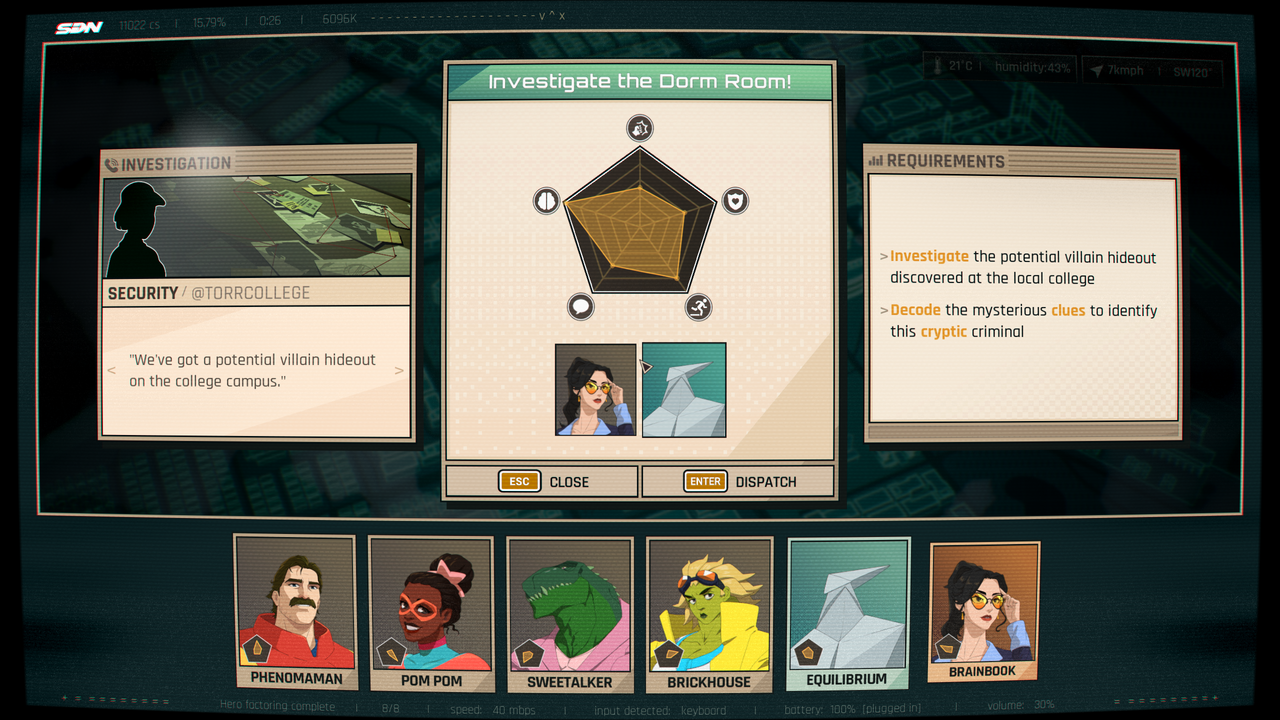
While the dispatching gameplay is engaging and strategic, it takes a backseat in these early episodes. Episode 1 focuses on setup, and Episode 2, set entirely at SDN, doesn’t give the mechanic as much room to shine as I’d hoped. Still, every moment—gameplay or not—is so well-crafted that it’s hard to complain. By the way, you can also see a percentage of people who made the same choices as you, which is a great cap off for each episode.
Final Thoughts — A Heroic Debut
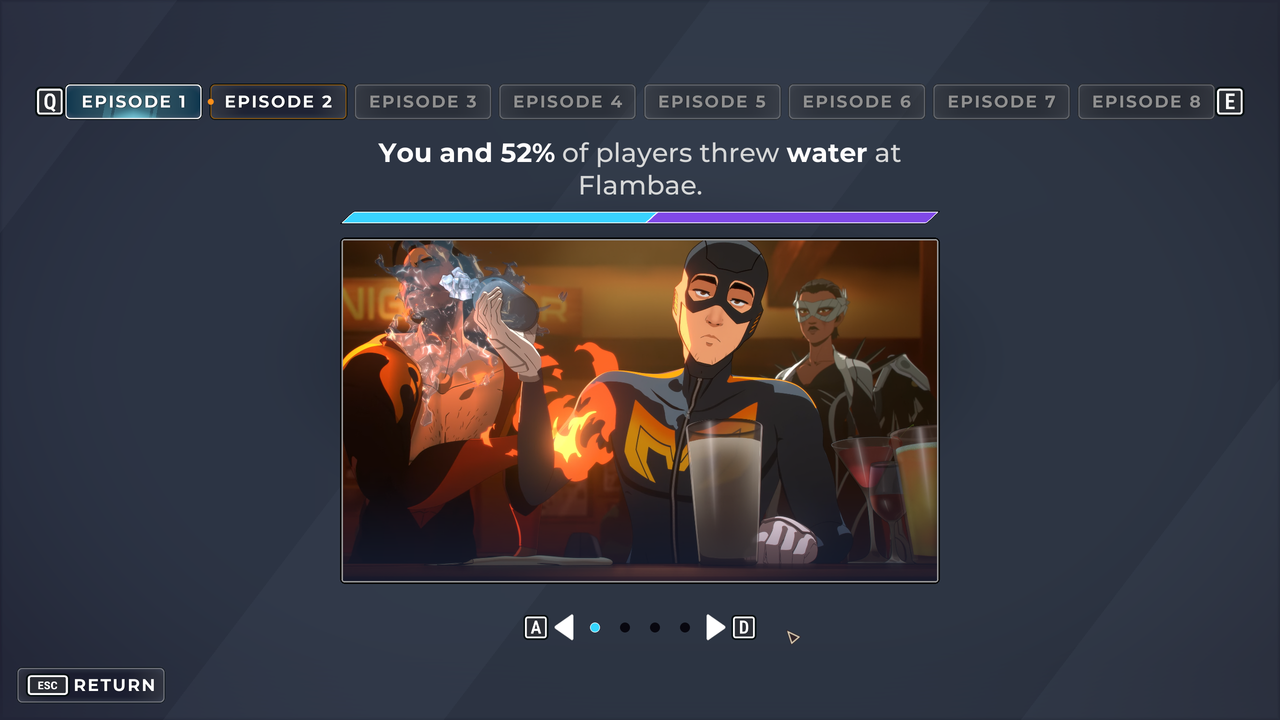
Dispatch: Episodes 1 & 2 is a thrilling debut that blends Telltale Games’ narrative magic with a fresh strategic twist. Its sharp writing, lovable (and hateable) characters, and vibrant presentation make it a joy from start to finish. While the dispatching gameplay could use more screen time, and the choices haven’t yet had major consequences, the foundation here is rock-solid. With two new episodes releasing weekly, with Episodes 3 and 4 set to drop on October 29, 2025. Dispatch has me hooked and eagerly awaiting the next chapter of this superhero saga. It’s shaping up to be a standout worth rooting for.
Final Score: 9/10
Pros:
- Stellar writing with humor, heart, and raunchy charm
- Vibrantly charming art style and awesome cutscenes
- Intricate attention to detail when it comes to choices and consequences
- Engaging cast of characters
- Dispatching mechanic is fun and strategic
- Seamless dialogue choices enhance immersion
Cons:
- Dispatching gameplay feels underutilized in early episodes
- Hacking minigames and QTEs are fun, but lack complexity
- Episodes feel a bit short at roughly an hour each

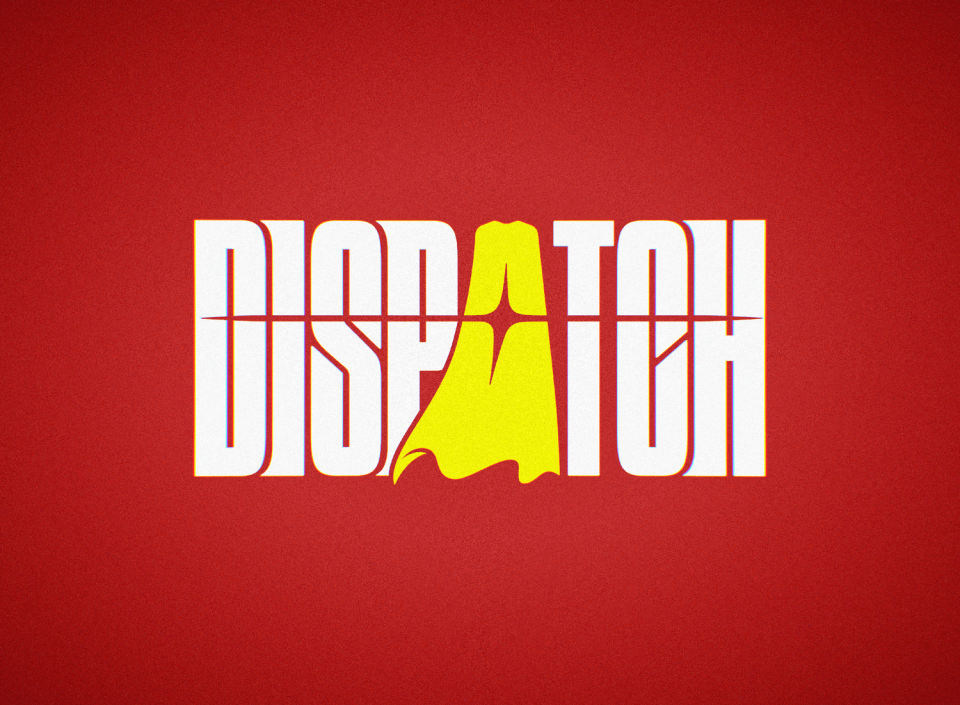
2 comments
[…] from Adhoc Studio picks up right where Episodes 1 & 2 left off, delivering even more of that irresistible blend of choice-driven narrative and strategic […]
[…] you’ve followed my reviews for Dispatch: Episodes 1 & 2/ Episodes 3 & 4 up to this point, you’ll know how impressed I’ve been with Adhoc Studio’s […]
Comments are closed.